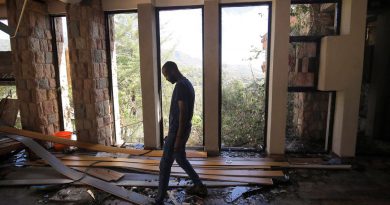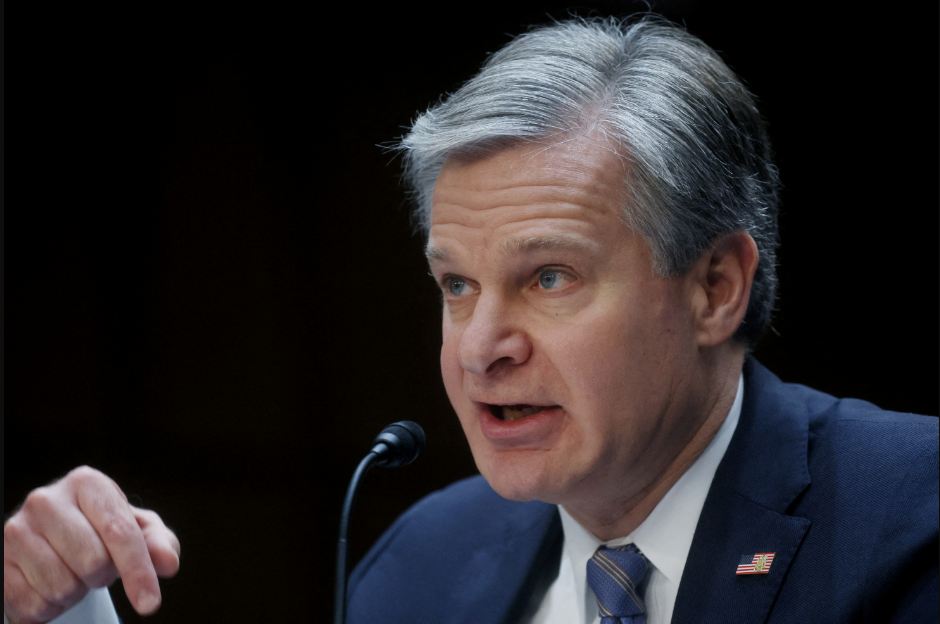Analysis: Saudi prince pivots to peace after years of war
Dubai (AP) — In the years since Saudi Crown Prince Mohammed bin Salman catapulted to power, it has been hard to find a controversy in the Middle East that doesn’t somehow involve the 37-year-old heir to the throne. Now he’s pivoting to his next audacious plan: Giving peace a chance.
The moves toward reaching a détente with Iran, reestablishing ties to Syria and ending the kingdom’s yearslong war in Yemen could extricate Prince Mohammed from some of the thorniest regional issues he faces.
Whether it succeeds will have profound impacts on the wider Middle East and on his expansive plans to reshape the kingdom away from oil and further into his image. Failure threatens not only his impending rule over a nation crucial to global energy supplies, but a wider region shaken by years of tensions, inflamed in part by his decisions.
Prince Mohammed’s rise accelerated in 2015 after his father, King Salman, appointed him as deputy crown prince. That year saw Mohammed, also the country’s defense minister at the time, plunge Saudi Arabia into a military campaign in Yemen, a civil war that grew into a regional proxy battle still continuing today. Riyadh supports Yemen’s exiled government against the Iranian-backed Houthi rebels who hold Sanaa, the country’s capital.
The tensions with Iran, at the time still in a nuclear deal with world powers, escalated with Saudi Arabia’s execution of a prominent Shiite cleric in 2016. Protesters stormed Saudi diplomatic posts in Iran, and Riyadh broke off ties to Tehran.
In 2017, Saudi Arabia joined three other Arab nations in boycotting Qatar, which maintains ties to Iran. The same year, the prince made what appeared to be a heavy-handed attempt to break Iranian-backed Hezbollah’s domination of Lebanon’s government by inviting Lebanon’s prime minister to the kingdom and then allegedly forcing him to announce his resignation. The attempt failed and Saudi Arabia’s influence in Lebanon has been diminished ever since.
Prince Mohammed days later launched a purported anti-corruption campaign that saw the Saudi elite locked in the Ritz Carlton until they handed over billions in assets. The slaying of Washington Post columnist Jamal Khashoggi at the Saudi Consulate in Istanbul, believed by the United States and others to be at the prince’s orders, followed in 2018.
But an attack that followed likely changed the prince’s calculations. In September 2019, a barrage of cruise missiles and drones struck at the heart of Saudi Arabia’s oil industry, temporarily halving production.
While the Houthis initially claimed the assault, the West and Saudi Arabia later blamed the attacks on Tehran. Independent experts also linked the weapons to Iran. Though Tehran still denies carrying out the attack, even United Nations investigators said that “the Houthi forces are unlikely to be responsible for the attack.”
Saudi Arabia never retaliated publicly for the attack, nor did the U.S. under President Donald Trump as the longtime security guarantor for the Gulf Arab states. That, as well as America’s later chaotic 2021 withdrawal from Afghanistan, led to a reconsideration in the region of how much to rely on U.S. promises.
Meanwhile, Saudi Arabia maintained a close relationship with Russia as part of the OPEC+ group. The organization’s oil production cuts, even as Moscow’s war on Ukraine boosted energy prices, angered President Joe Biden and American lawmakers. China, emerging from the coronavirus pandemic, also wants to secure its supply of Saudi oil.
Both Russia and China offer Saudi Arabia and Prince Mohammed the cachet of being respected by the world’s great powers without the persistent human rights concerns of the West. Prince Mohammed has hosted and spoken by phone with both Chinese President Xi Jinping and Russia’s Vladimir Putin.
The Chinese-mediated deal on the kingdom reestablishing ties with Iran also provides Prince Mohammed with a new opportunity to show the U.S. that others can shape Mideast politics. It also offers a needed lull to allow the prince to instead focus on his planned $500 billion futuristic desert smart city project called Neom in the kingdom’s northwest, and the Mukaab in Riyadh — a 400-meter-high (523-yard) cube-shaped mini-city full of holograms and entertainment venues — to anchor a new downtown in the Saudi capital, likely to cost billions more if completed.
A lull in tensions is desperately sought by Iran as well, particularly in the wake of the Mahsa Amini protests that represent one of the greatest challenges to its theocracy since the chaotic years after the 1979 Islamic Revolution. U.S. sanctions over Tehran’s collapsed nuclear deal as well still choke Iran’s economy.
For Prince Mohammed, the time must have appeared right to make the move. Already, Saudi Arabia led efforts to reestablish ties to Qatar in 2021. Easing tensions with Iran may provide him the avenue to finally fully pull out of the Yemen war.
Still, Prince Mohammed instructing Saudi officials to sit down with Iranian counterparts to reopen embassies represents a dramatic change for a leader who in 2018 said: “I believe the Iranian supreme leader makes Hitler look good.”
Meanwhile, talks are ongoing on restoring ties with Syria, still under Iranian-backed President Bashar Assad after years of civil war. An upcoming Arab League summit being hosted by the kingdom in May could see Syria formally brought back into the fold. Even Lebanon, beset by crises ranging from fiscal to even time keeping, could benefit from a Saudi-Iran rapprochement.
The kingdom will also face a transition in the future. King Salman is already 87. His predecessor, King Abdullah, was the oldest Saudi monarch when he died at the age 90. Prince Mohammed likely will be the youngest ever to take the throne — and could have decades more to make his mark on the kingdom.
What that mark will be depends just as much on him as it does on whether he can cool the tensions he helped kindle.



